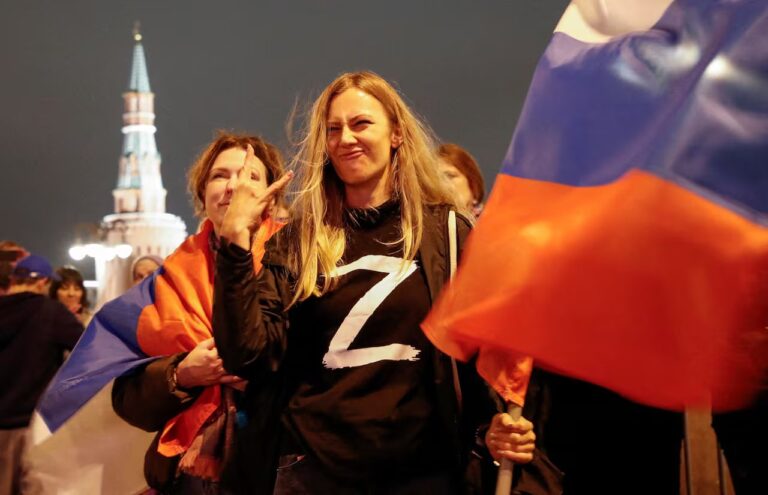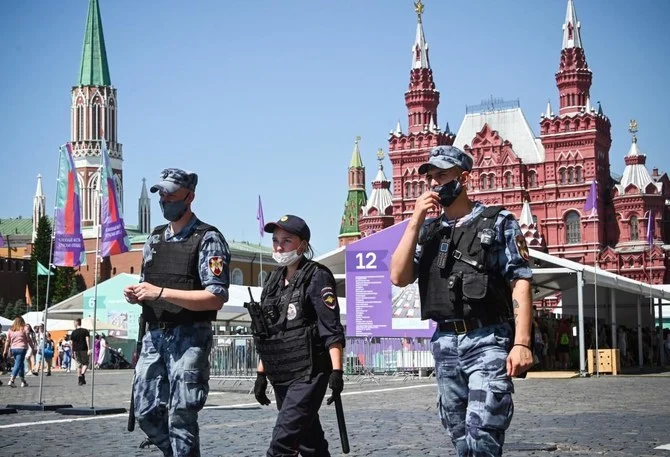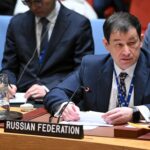The Putin regime has skillfully deployed a controlled opposition, manipulated through coercion and repression, to weaken Russia’s isolation and rehabilitate the image of Russians abroad.
On November 17, an “anti-war” rally organized by Russian opposition figures took place in Berlin, initially expected to draw around 2,000 participants but ultimately attracting a crowd of approximately 500.
- This event appears to have been a public relations campaign targeting European media and policymakers.
- Russian opposition figures in exile lack tangible political influence within Russia. However, they are arguably being used by Russian authorities to mitigate international isolation and maintain Russian influence in Western nations.
- Russian émigrés, knowingly or unwittingly, contribute to efforts that undercut Russia’s isolation while preserving its sway in the West.
By insisting that President Putin alone bears responsibility for the war, these opposition figures deny the evident culpability of Russian citizens. In contrast to Germany’s post-World War II approach, which embraced collective responsibility for Nazi crimes, the so-called Russian opposition seeks to transfer all accountability for crimes in Ukraine onto the Putin regime. Yet these crimes—ranging from genocide and executions of prisoners of war to the forced deportation of civilians, including children—mirror the atrocities of Nazi Germany.
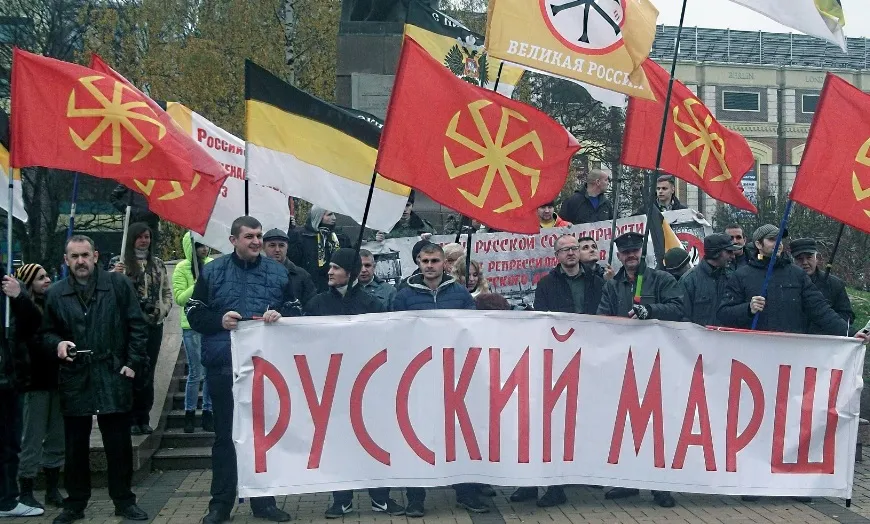
More on this story: The new Russian Reich – why Putin is a new Hitler?
Public Support for the War Remains High
According to recent data, 76% of Russians continue to support the actions of their armed forces in Ukraine (46% “definitely support,” 30% “somewhat support”). Only 16% express opposition. This level of support is comparable to the 86% approval for Hitler’s policies in Nazi Germany. It underscores the necessity of extending accountability for Russia’s actions in Ukraine to its populace.
Russian state propaganda reinforces this narrative, emphasizing that Western sanctions harm ordinary citizens rather than the Putin regime. Yet it is essential to note that Russia’s soldiers—many implicated in war crimes—are representatives of the general population, and their actions often originate from mid-level commanders rather than direct orders from the Kremlin.
We cannot entirely dismiss the possibility that Russians’ negative attitudes toward the West stem from envy and the relatively lower standard of living in Russia. Since the Cold War, this disparity has been linked to the prioritization of military spending within the country’s economy.
The hostility some Russians express toward the West may, in part, stem from envy of the West’s higher standard of living, exacerbated by decades of prioritizing military spending over civilian welfare. This has fostered a paradoxical national pride in Russia’s military capabilities, even as the country lags technologically and economically.
Challenges to Constructive Engagement
We remain skeptical about the prospect of transforming Russia into a constructive partner for the West or achieving meaningful agreements. The nostalgia for the Soviet Union—encouraged by the Kremlin to cultivate support for its imperial policies—fuels public backing for confrontational and aggressive strategies.
Former Russian President Dmitry Medvedev has openly articulated the Kremlin’s objectives of fracturing the United States and humiliating Europe. These goals, deeply rooted in resentment over the Soviet Union’s collapse, are shared by much of the Kremlin leadership, which views the West as responsible for Moscow’s territorial losses and diminished global status.
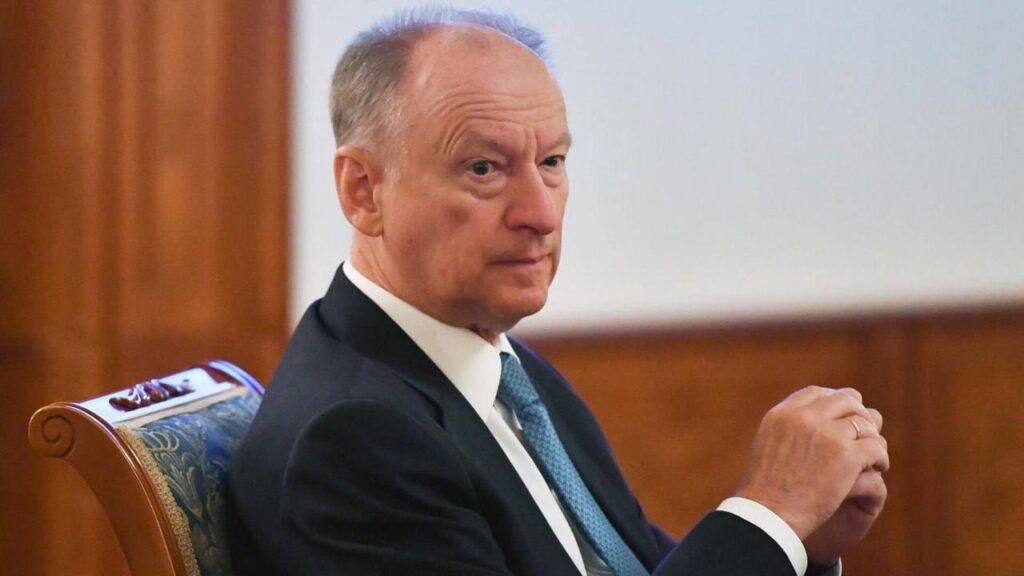
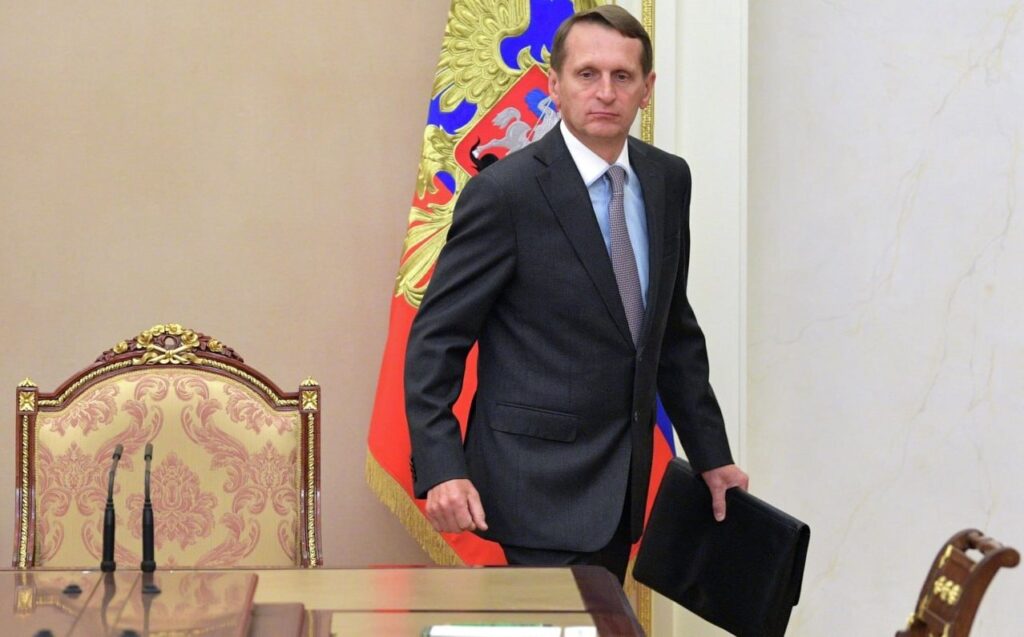
The Kremlin’s alliances with nations such as Iran, North Korea, and Taliban-controlled Afghanistan reflect an asymmetrical strategy to counter the West by uniting its adversaries. This policy, backed by significant segments of the Russian population, complicates the potential for dialogue and peace.
Recent developments, including intensified Russian missile strikes on Ukraine following U.S. elections, suggest that Moscow sees little incentive for compromise, even amid Western leadership transitions.
In light of these dynamics, the outlook for transforming Russia into a cooperative partner remains bleak.
Russian opposition figures often argue that responsibility for the war in Ukraine lies with Vladimir Putin and his regime rather than the Russian nation as a whole, for several reasons:
- Autocratic Decision-Making: They highlight that Russia’s political system under Putin is highly centralized, with key decisions, including military actions, made by a small circle of elites without public consent or meaningful democratic processes.
- State Propaganda: The government controls much of the media, shaping public opinion and limiting access to alternative narratives about the war.
This argument aims to separate the actions of the regime from the broader population, many of whom lack the freedom or resources to oppose government policies. Critics, however, point out that broader societal attitudes and passivity can also play a role in enabling authoritarian regimes.
The Russian opposition’s efforts to deny societal responsibility for the war in Ukraine often stem from a strategic and moral position:
- Avoiding Collective Blame: They argue that Putin’s regime acts independently of public will, emphasizing the lack of genuine democracy and the suppression of dissent, which limits public agency.
- Preserving Future Relations: By distancing the broader Russian society from the war, opposition figures aim to protect the Russian people’s reputation globally and facilitate reconciliation post-Putin.
is framing, however, is debated, with critics noting that societal passivity and nationalism may indirectly enable. authoritarian policies.
Opposition and Imperial Ambitions: A Complex Legacy
It is important to remember that opposition leader Alexei Navalny once expressed support for the annexation of Crimea, casting doubt on the absence of imperial ambitions within the Russian opposition.
This stance complicates the narrative that Russia’s opposition movements are entirely free from the ideological legacy of the Kremlin’s expansionist policies. It raises questions about the extent to which even vocal critics of the regime may share elements of the broader imperial mindset prevalent in Russian political culture.
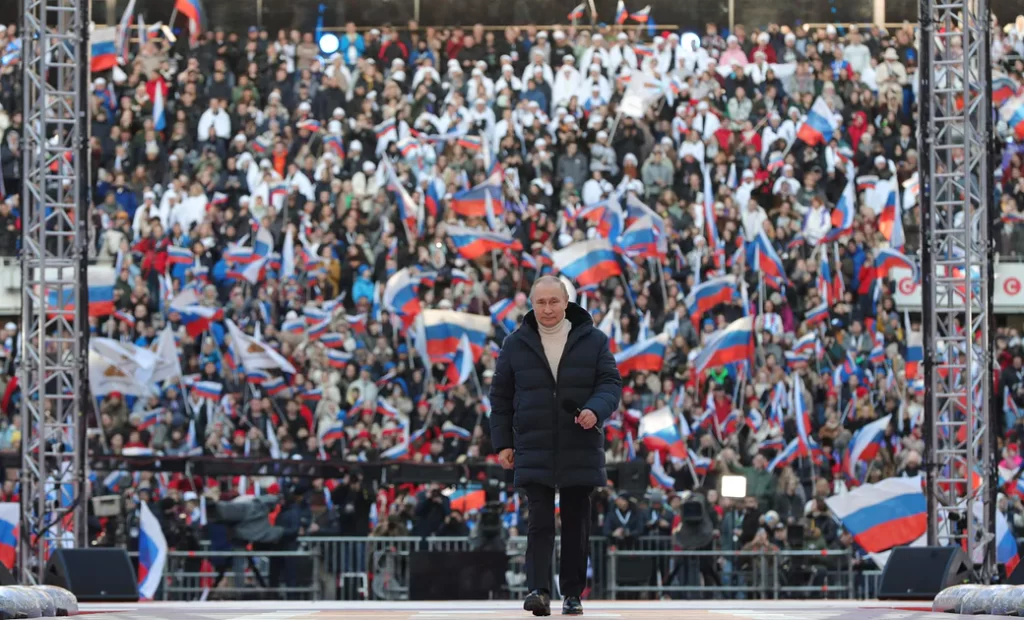
More on this story: Neither Putin nor the Russians like freedom
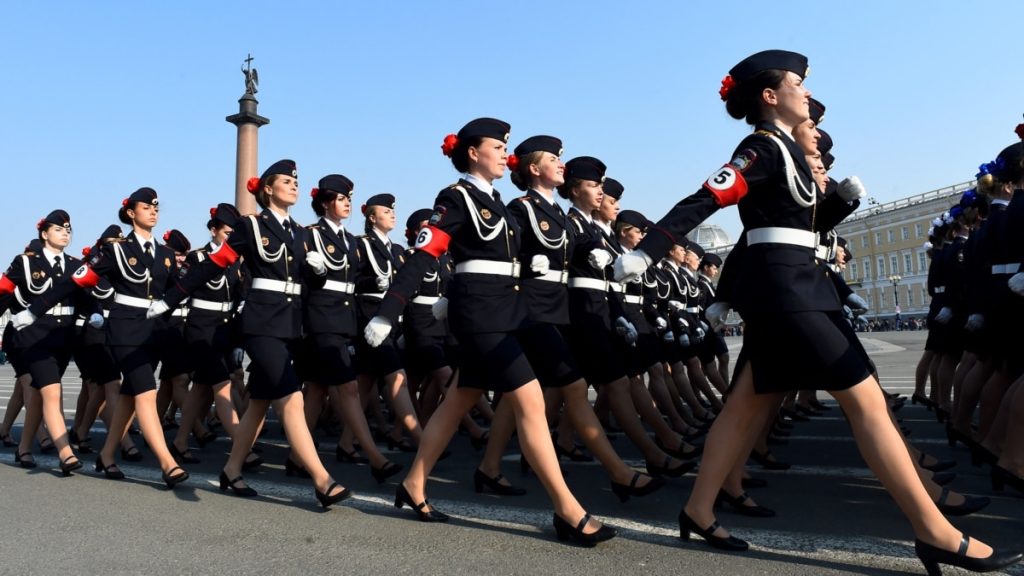
More on this story: Nazism emerges in Russia, as Russian neo-Nazis fight in Ukraine
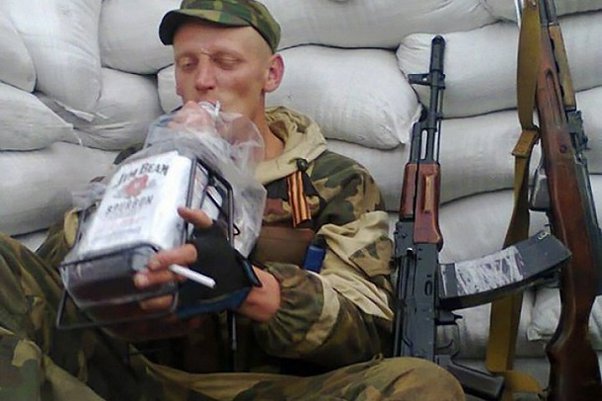
More on this story: War crimes to reflect the essence of Russians
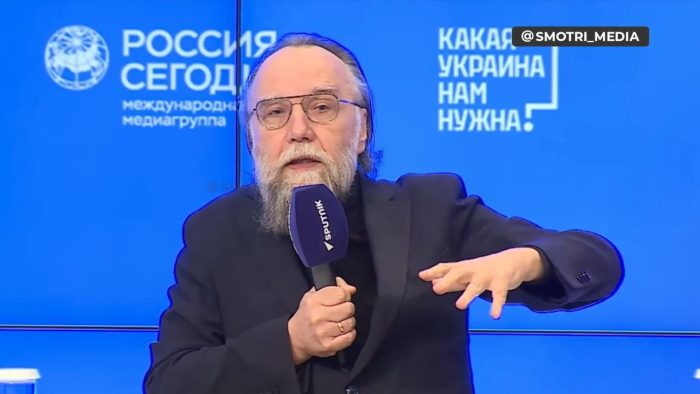
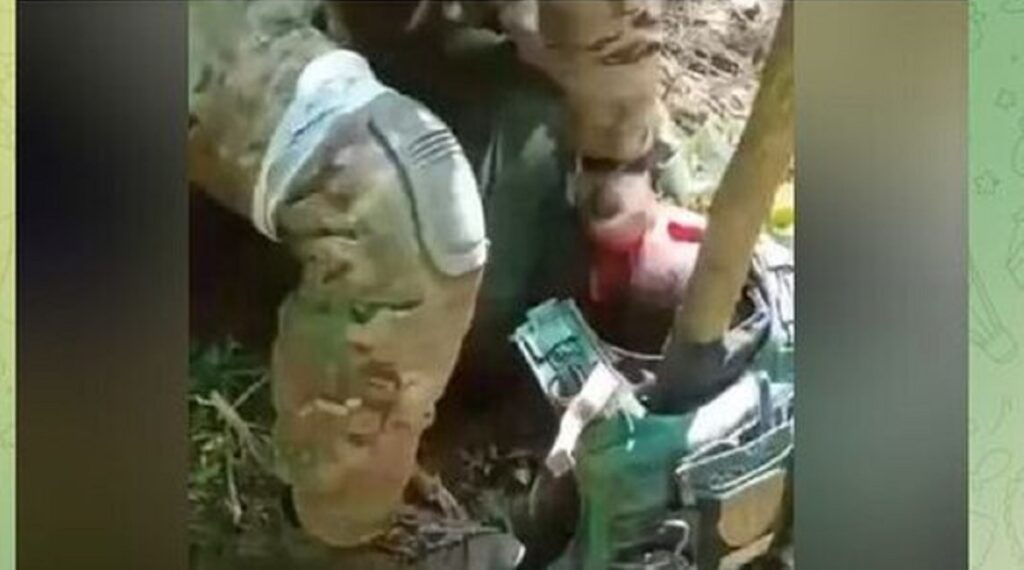
More on this story: Russia’s war crimes reflect population’s morality lows


